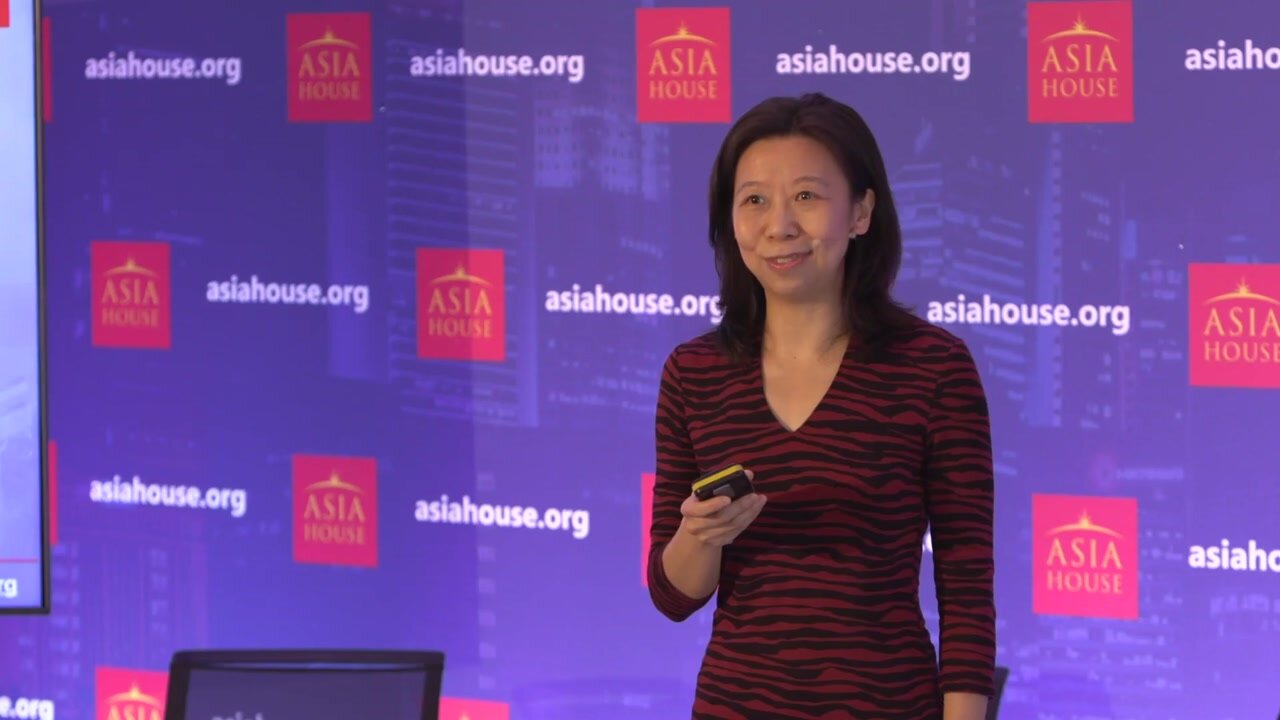Cheung Kong Graduate School of Business partnered with Asia House to discuss the efforts to move towards a more sustainable global economy and divergence in compliance between China and the West on Wednesday 29 May. Over 200 business and policy leaders attended the conference online or in person.
Professor of Marketing and Director of ESG and Social Innovation Center at CKGSB, Zhu Rui, gave a presentation on her research on ‘Business for Good’, where she highlighted how enterprises could integrate ESG factors into their corporate strategies. Professor Zhu, who has been running CKGSB’s Social Innovation and Business for Good Field Course since 2020 highlighted the three core pillars that were critical for enterprises to implement ‘Business for Good’ – the values of shared benefits, institutional support, and integrating core business with societal concerns.
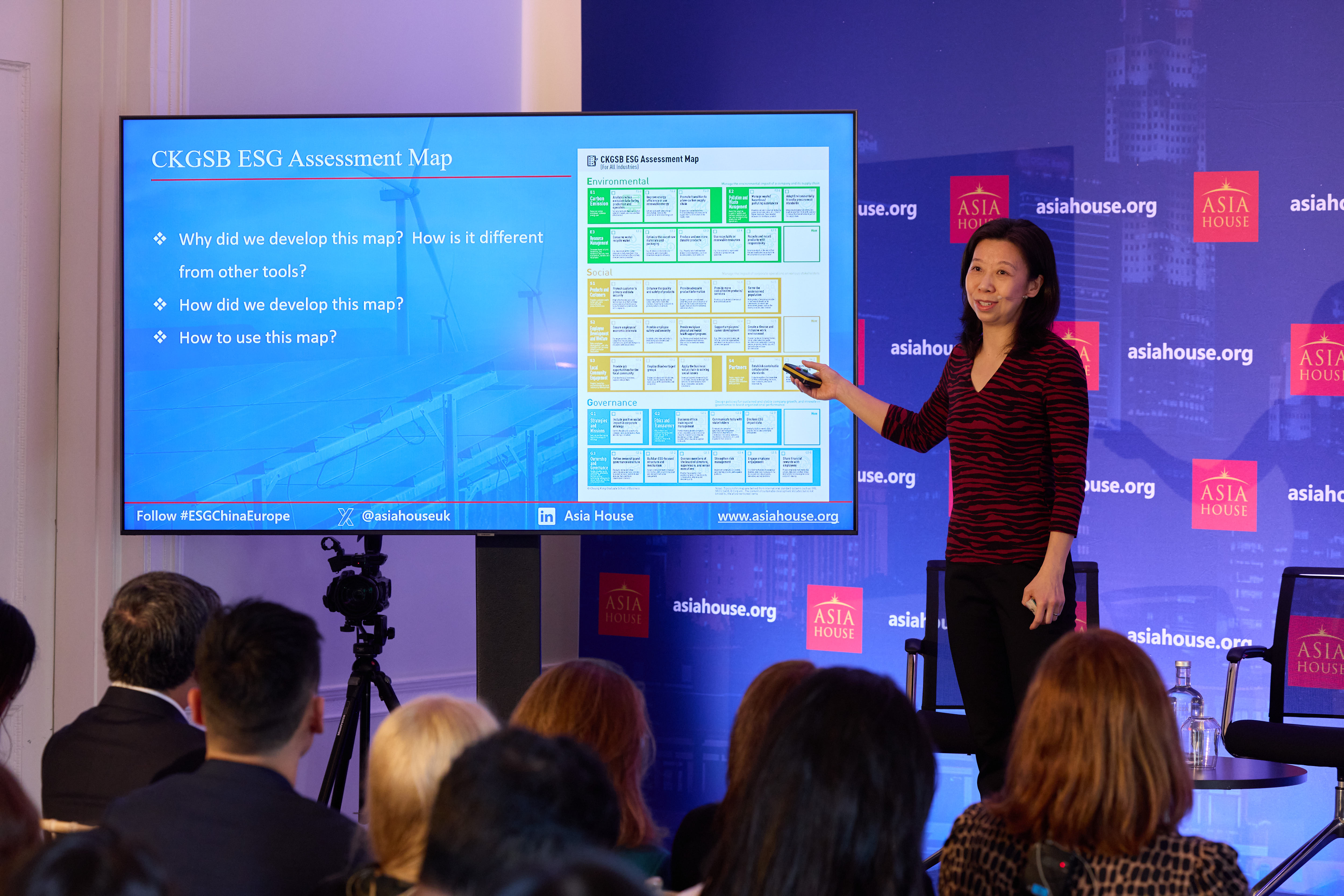
Since she started teaching ESG and social innovation, she realized that many of the mainstream ESG guidelines were too complex for Chinese business leaders who are just starting to comply with ESG standards. So, Professor Zhu developed a new ESG assessment map that entrepreneurs could easily integrate into their businesses. She explained that entrepreneurs could start to do ‘business for good’ by following this tool to identify which ESG ‘topics’ they needed to address, concluding that it was in fact “the process of theory informs practice and practice refines theory”.
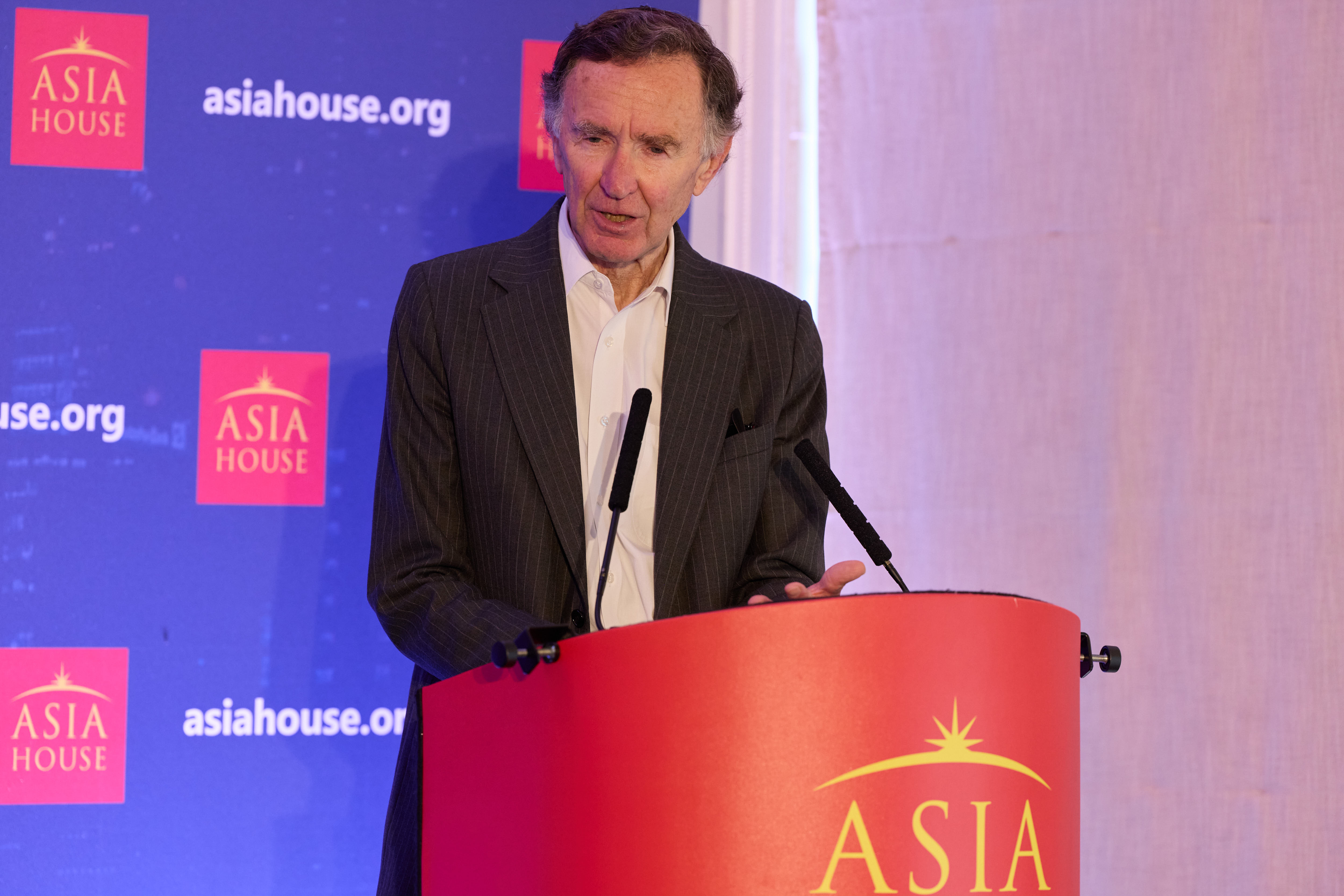
She was joined at the event by Lord Green, Chairman of Asia House, who gave opening remarks indicating that “sustainability, whether in China or the West, is a global concern for us all”. He said that companies should take action to integrate sustainability into their business planning so that any strategy for profit maximisation incorporates sustainable actions, adding that the increasing importance of sustainability was being driven by the growing demand from consumers, shareholders, employees, and the regulatory environment for businesses to adopt more sustainable practices. The topic of sustainability remained crucial, and it was imperative that “we get it ‘right’ in the decades to come”, he added.
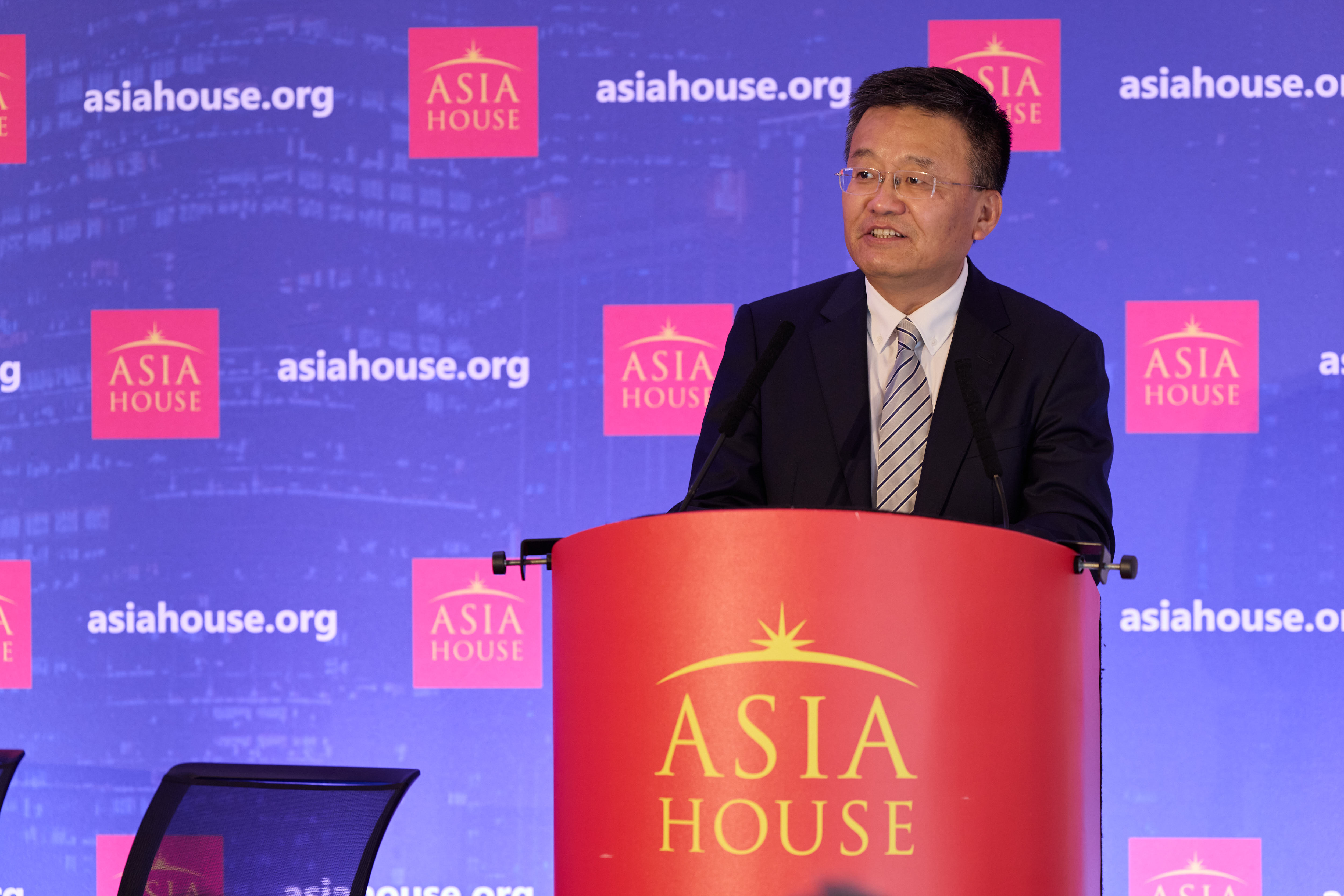
Aimin Yang, General Manager, China Construction Bank London Branch, also gave a speech of the global efforts needed to combat climate change and stressed that “any discussion on climate change must include China”, concluding that climate change was a global challenge and required broad cooperation.
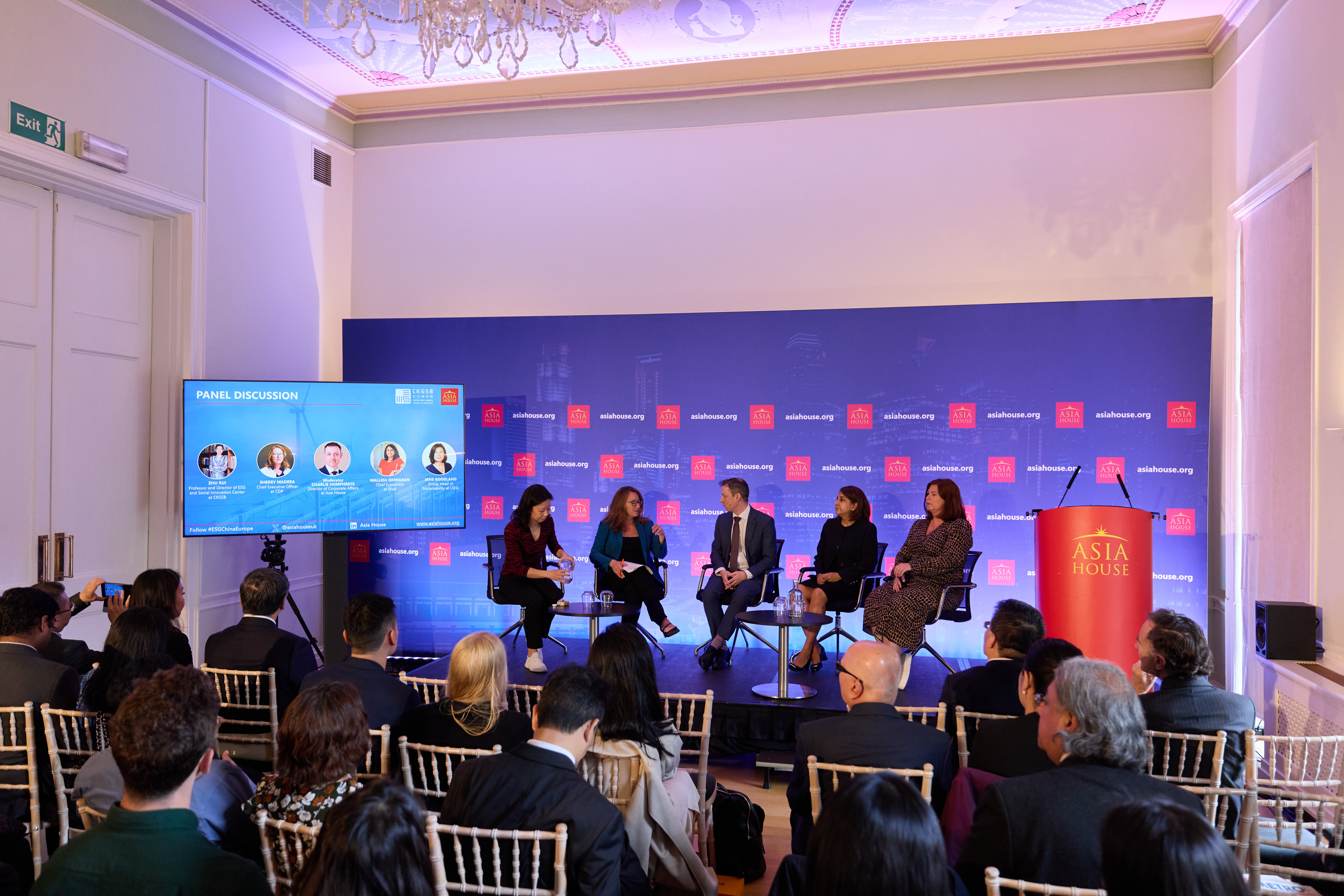
Finally, Professor Zhu Rui joined alongside Mallika Ishwaran, Chief Economist at Shell; Sherry Madera, Chief Executive Officer at CDP – one of the world’s leading disclosure platforms; and Jane Goodland, Group Head of Sustainability at London Stock Exchange Group (LSEG) for a panel discussion on the efforts to establish a consistent global ESG framework.
Madera highlighted current trends in data disclosure, indicated that disclosing climate data was increasingly treated as a core part of business activity. By disclosing climate data and committing to transparency, companies were able to understand their business operations more comprehensively, thereby improving business decisions, governance, and ultimately lowering their emissions while yielding more efficient results. As an example, Madera indicated that in China CDP had worked with entrepreneurs and helped them “lower their emissions by over 600 million tons”.
